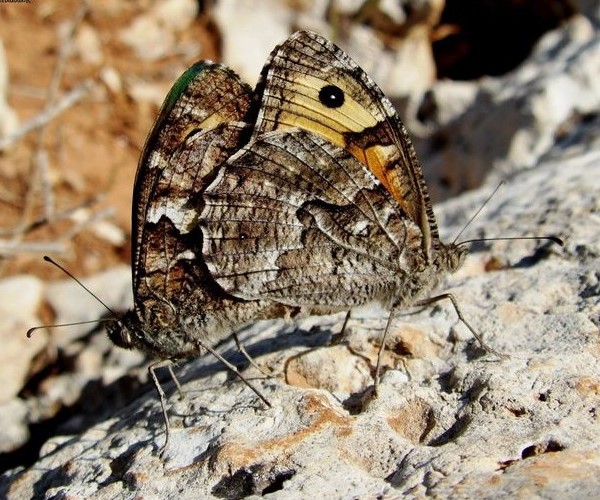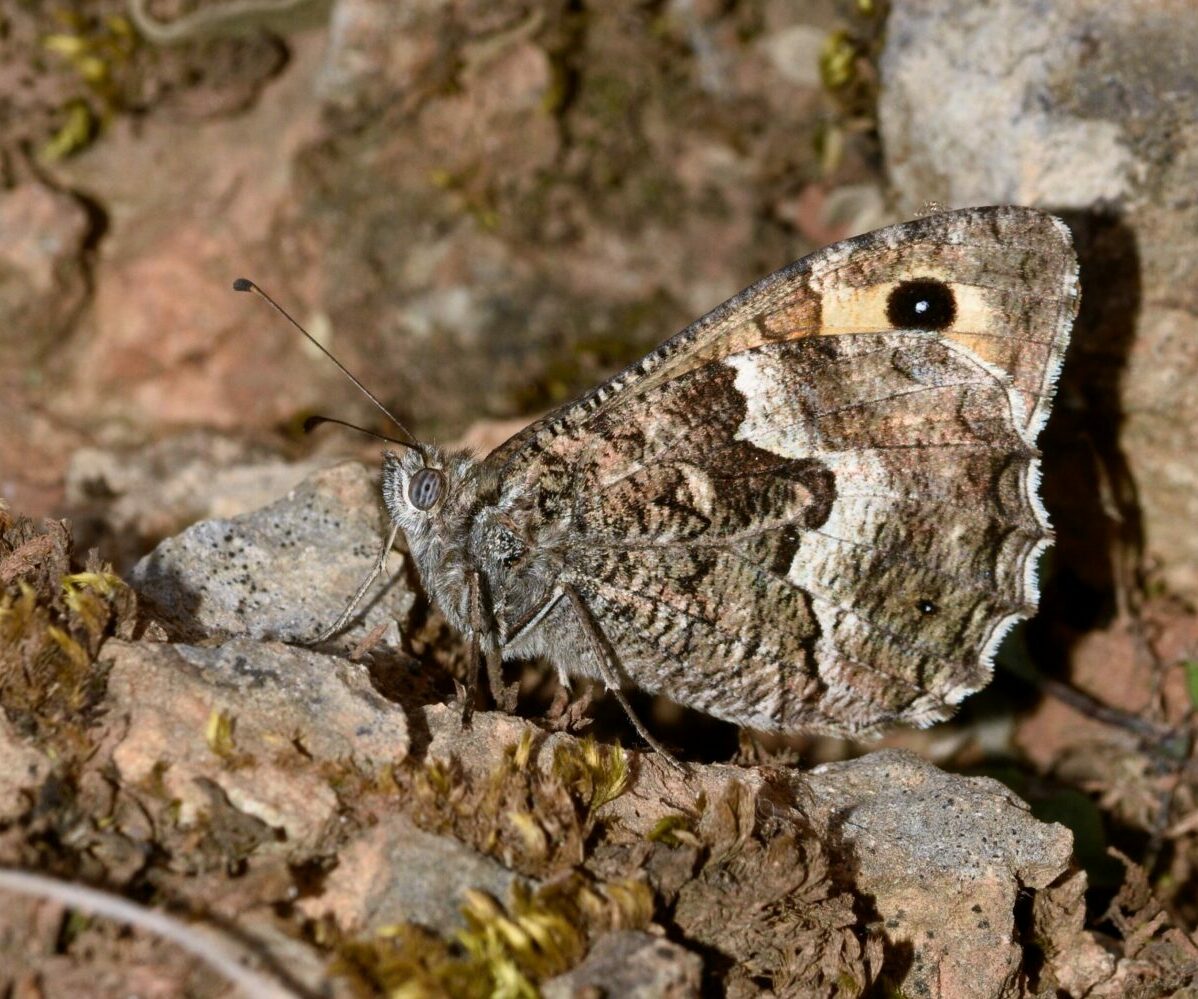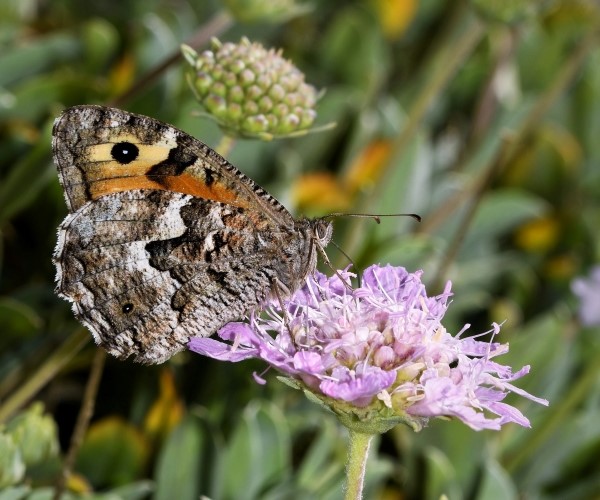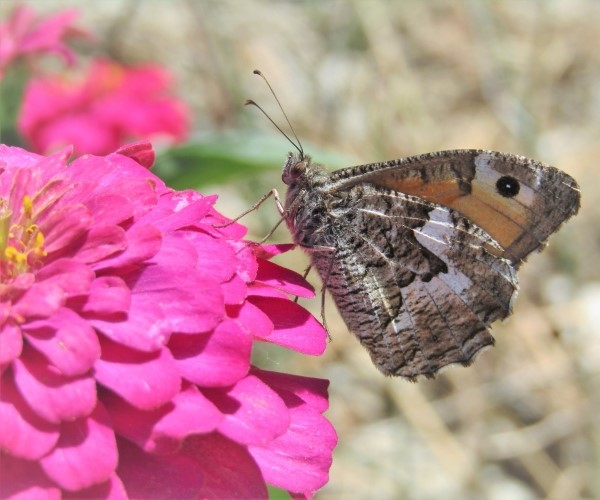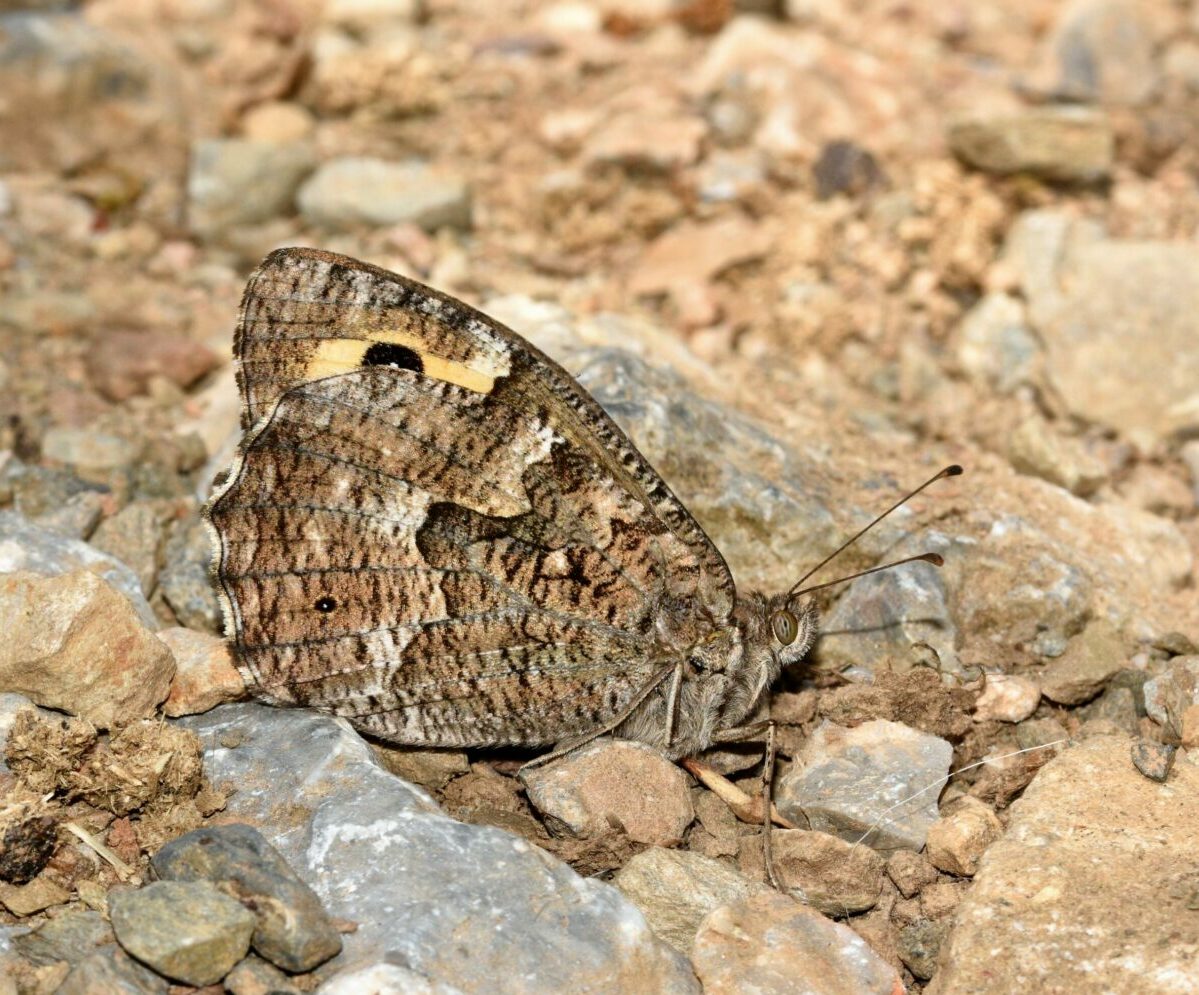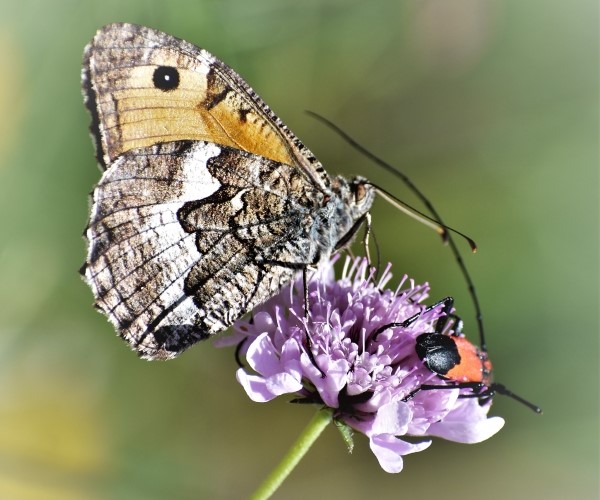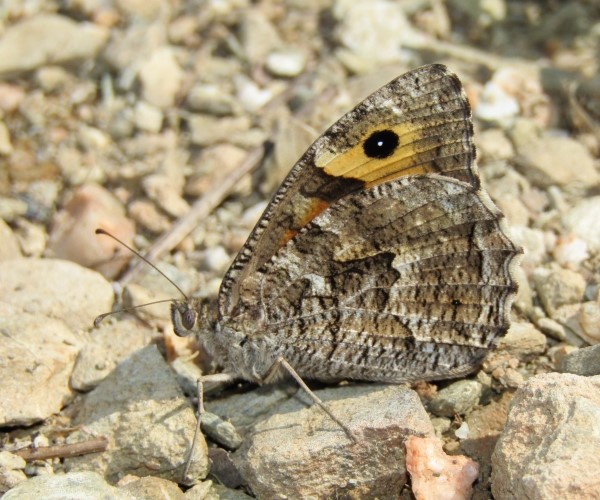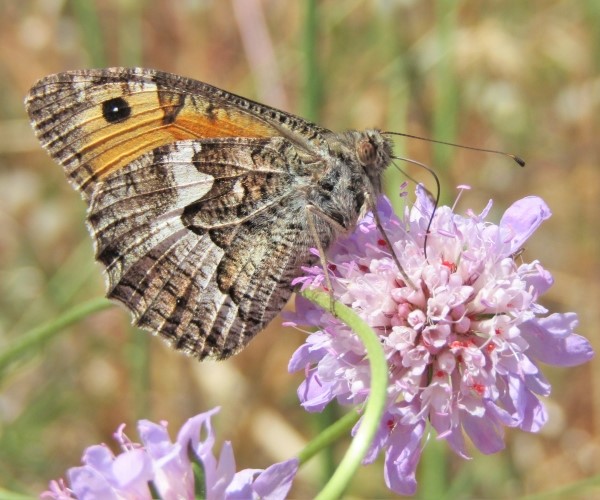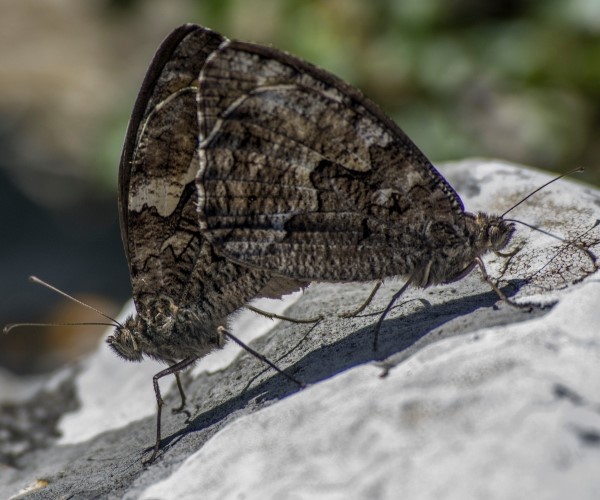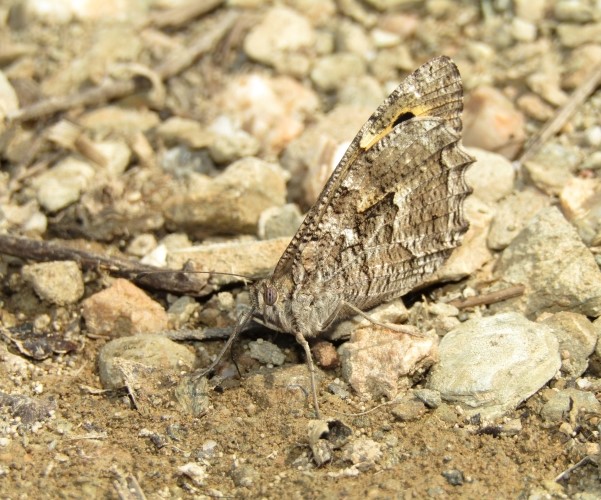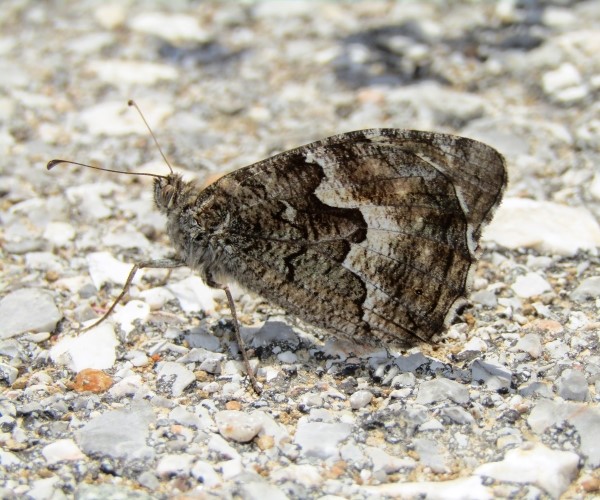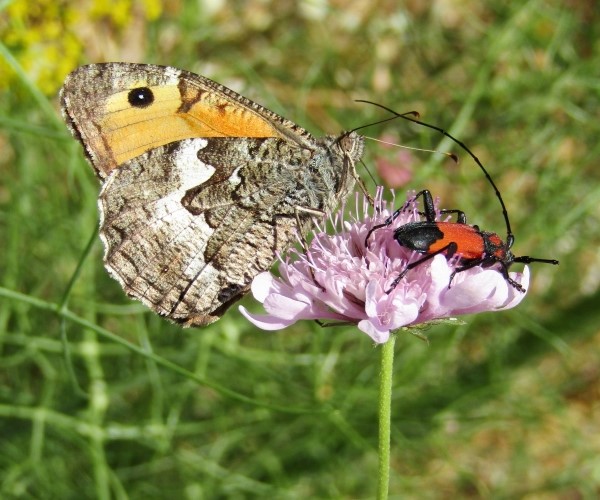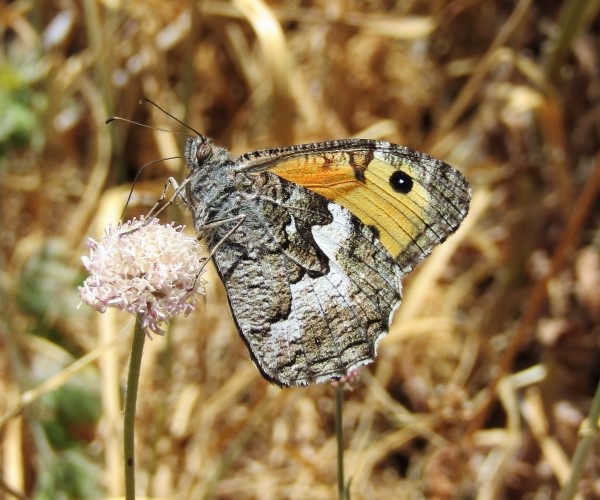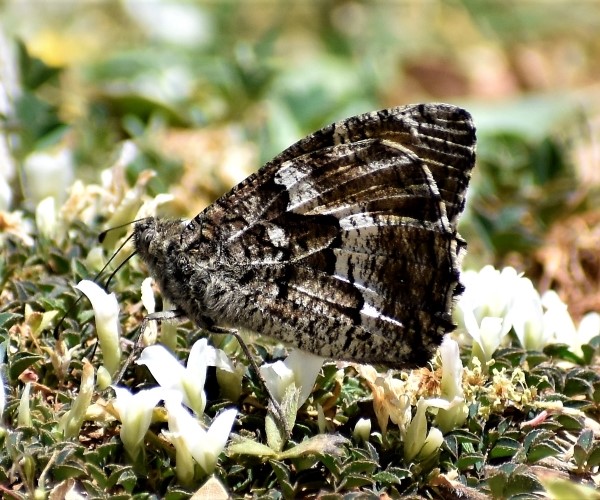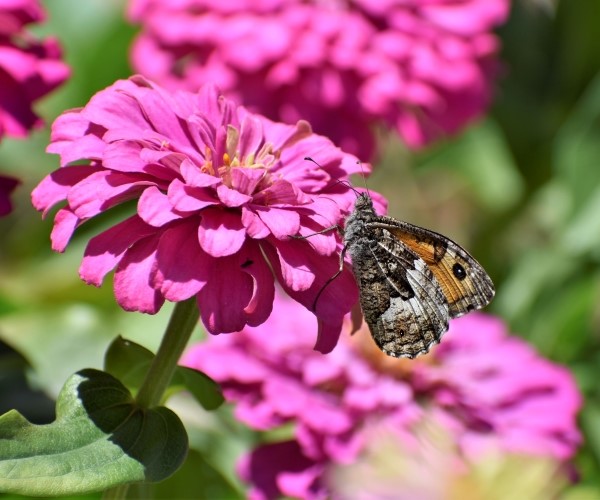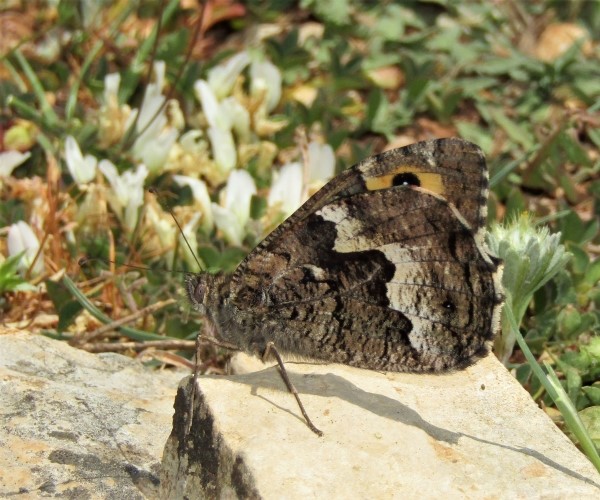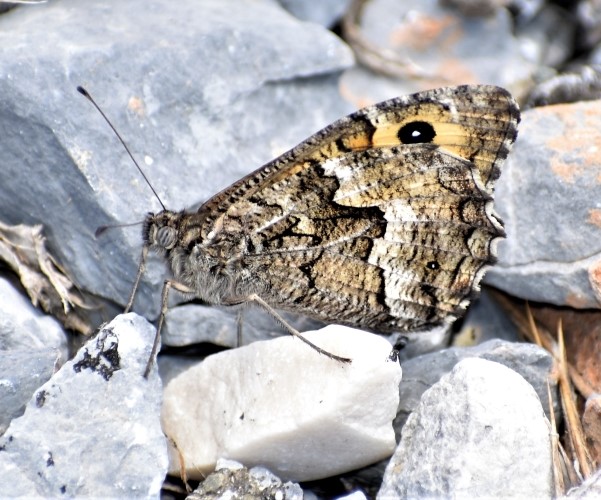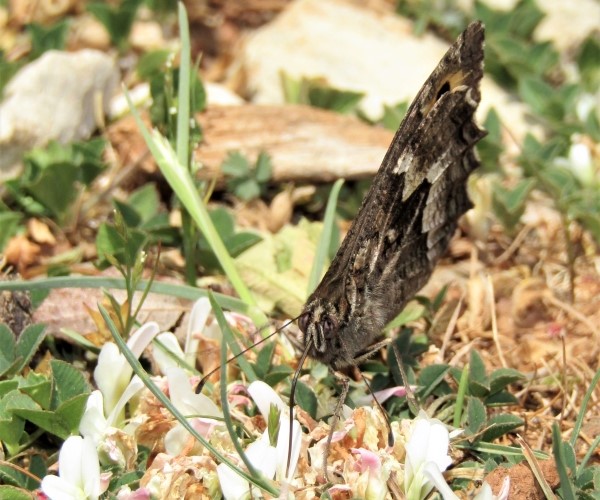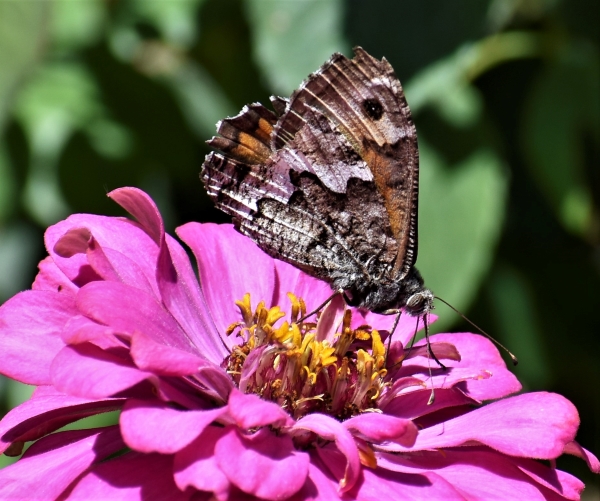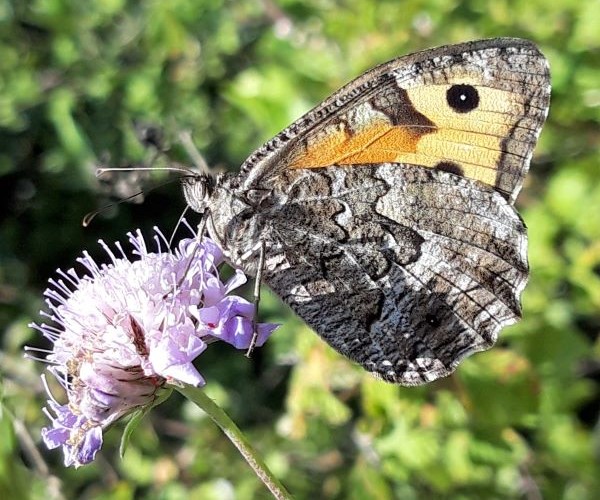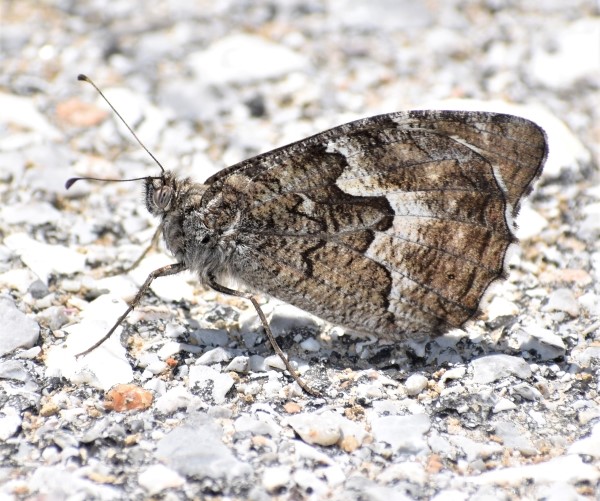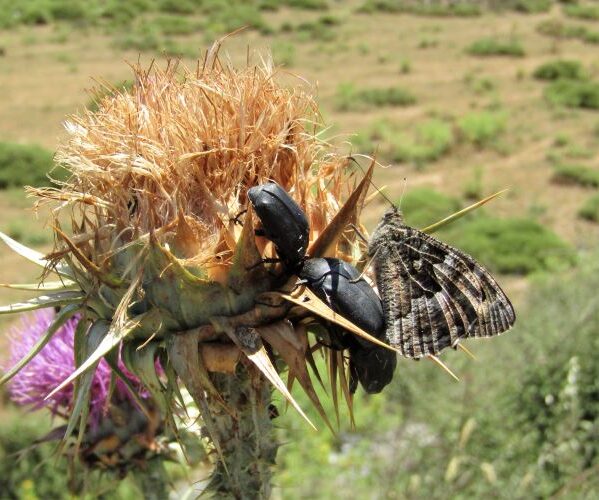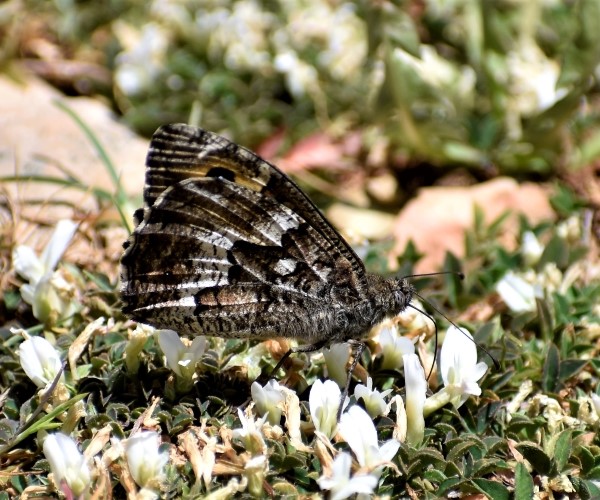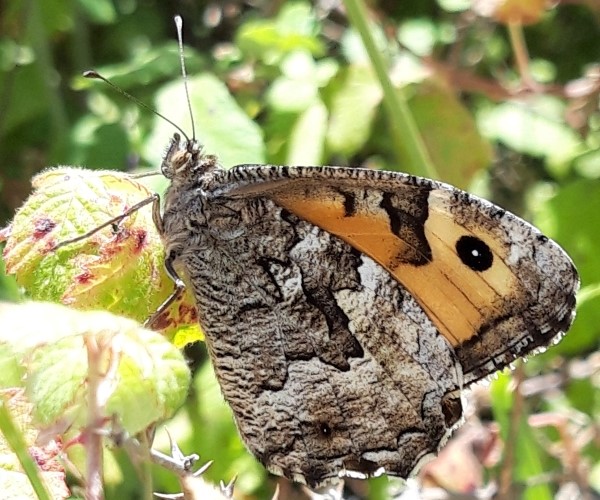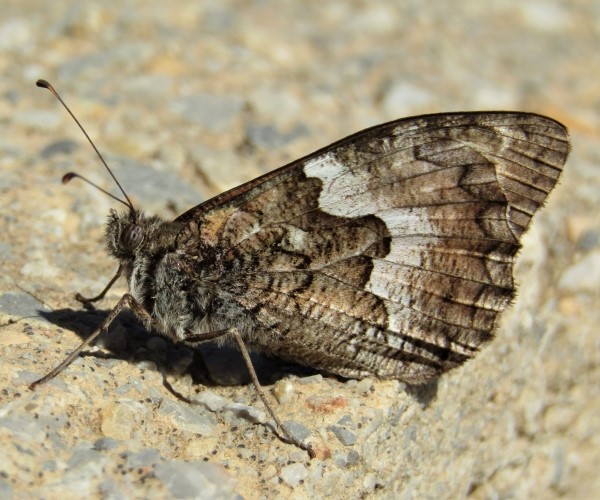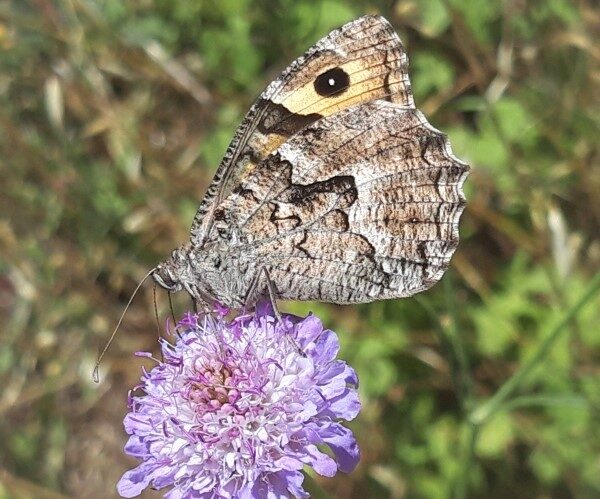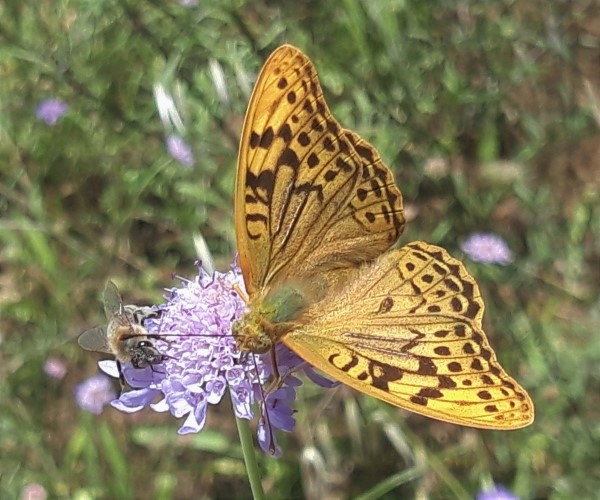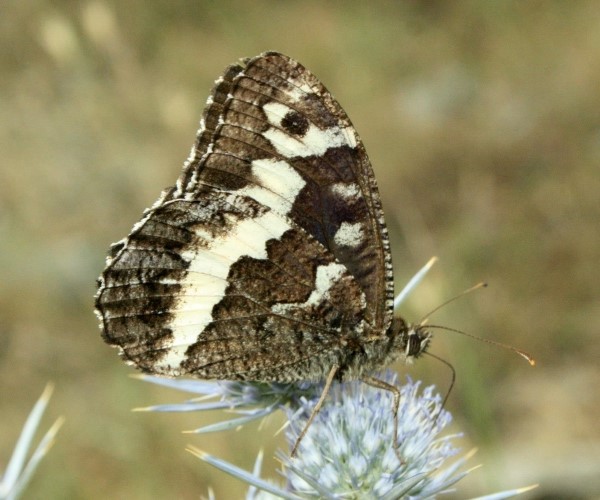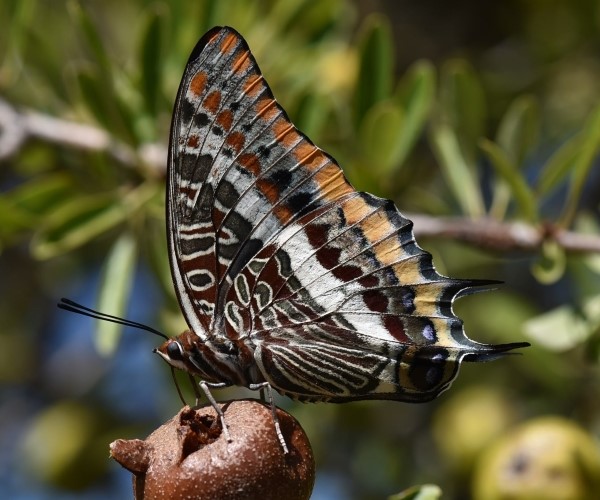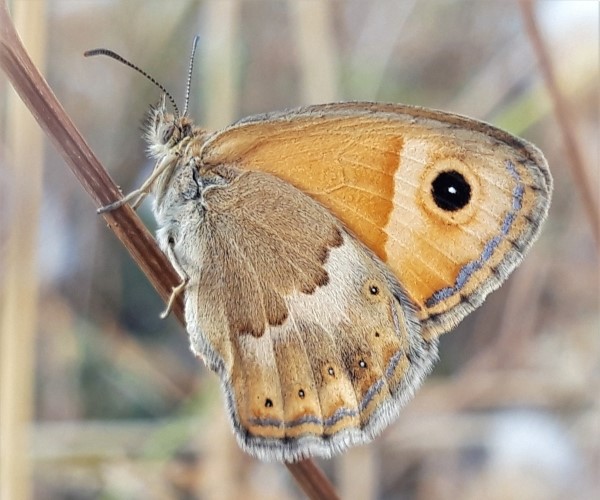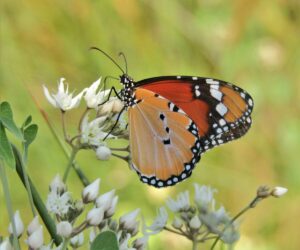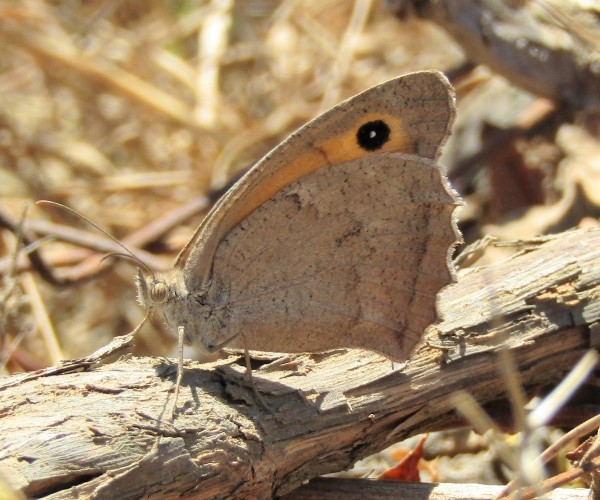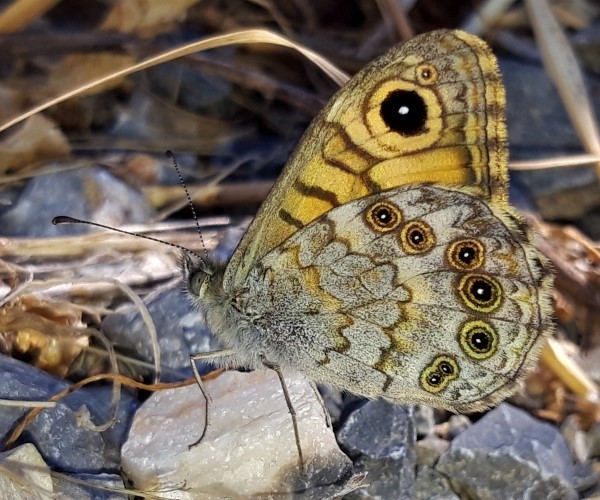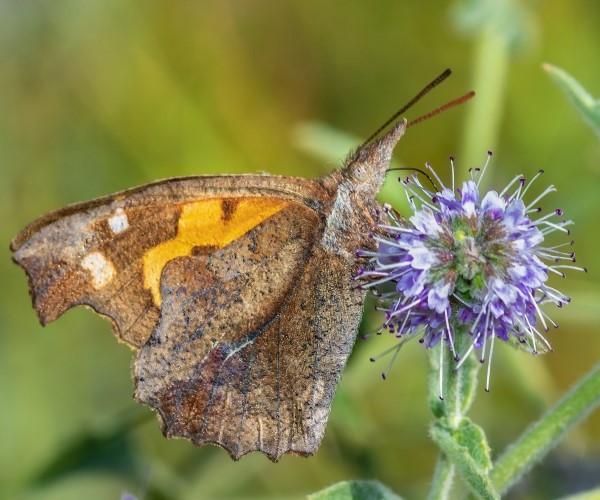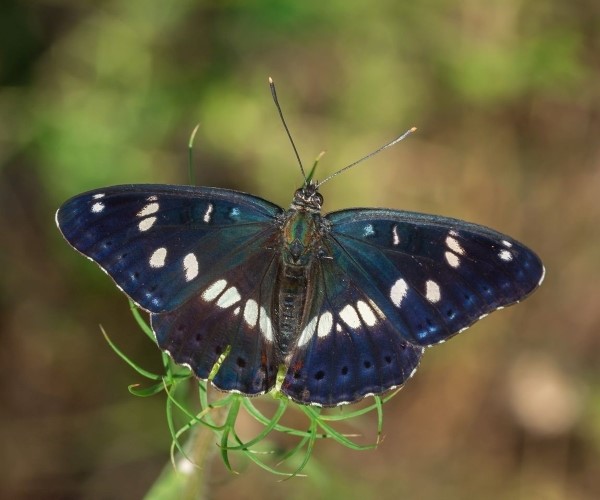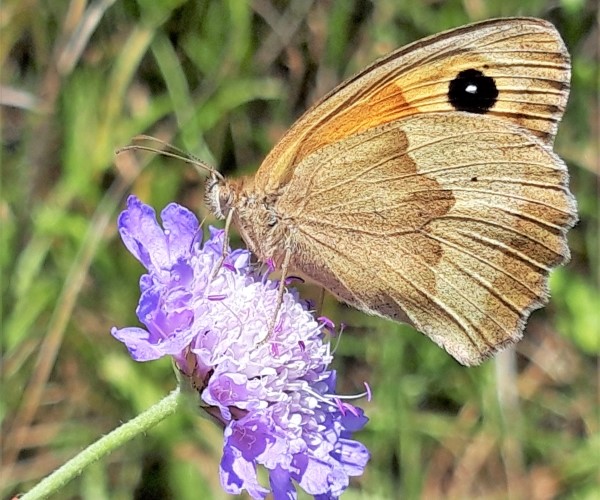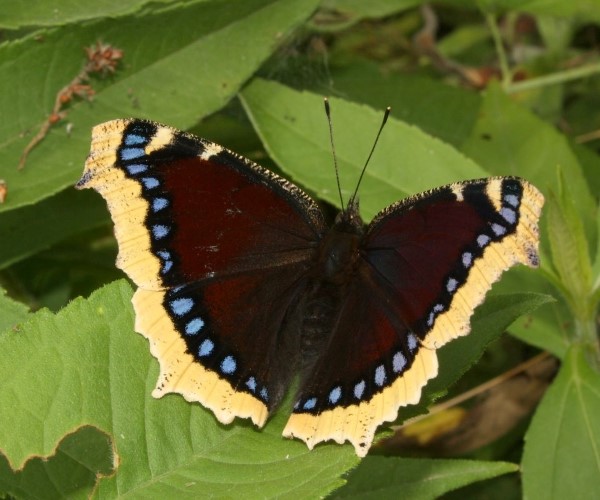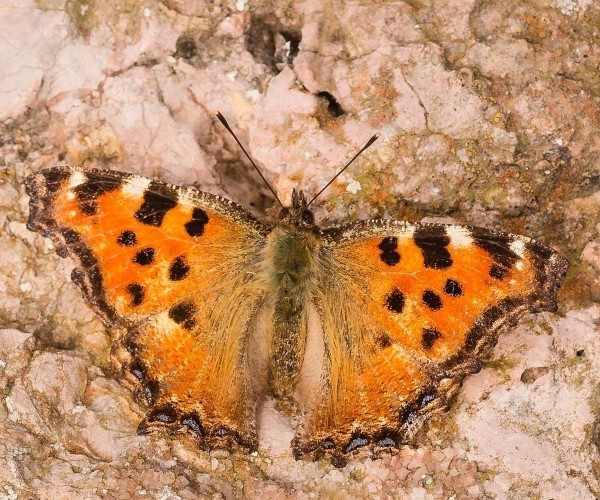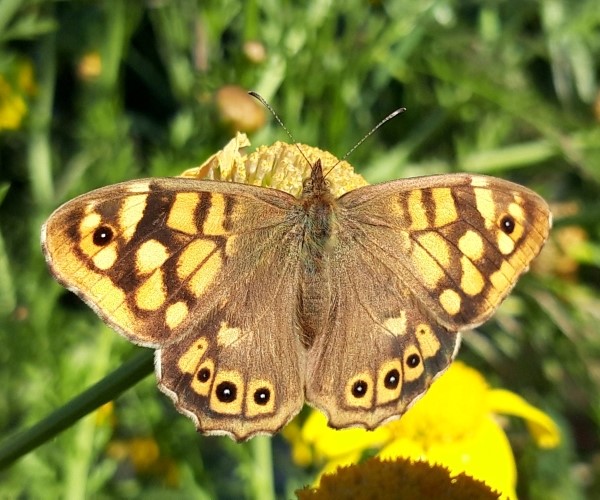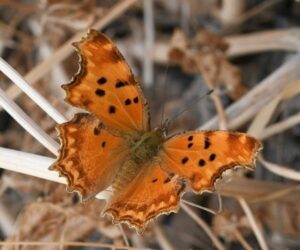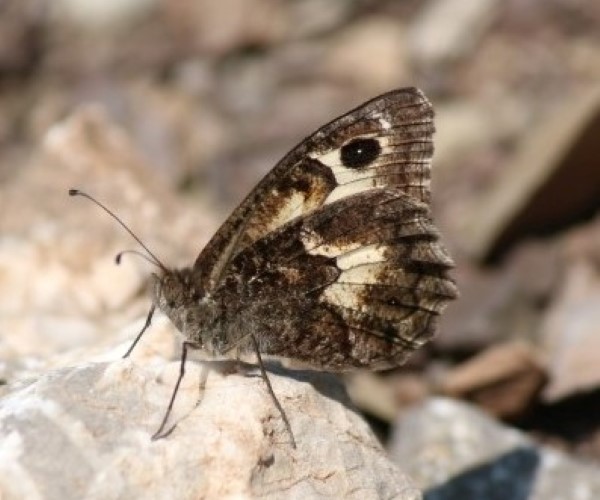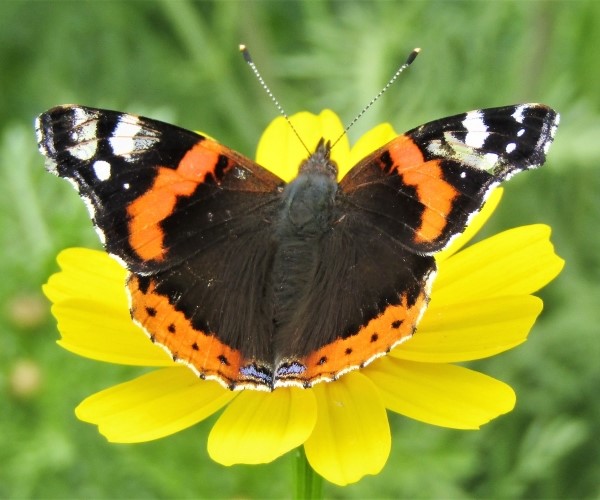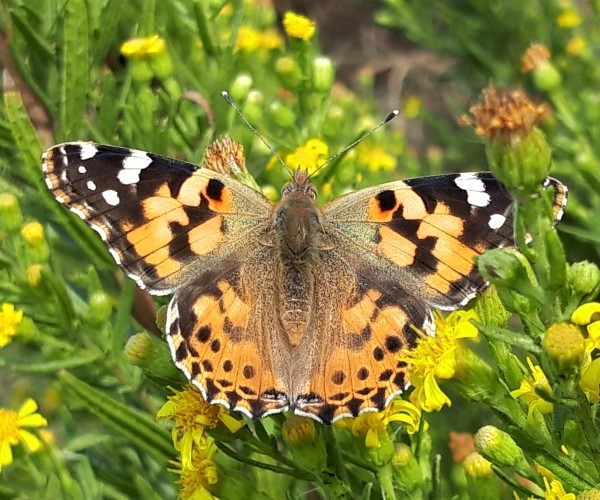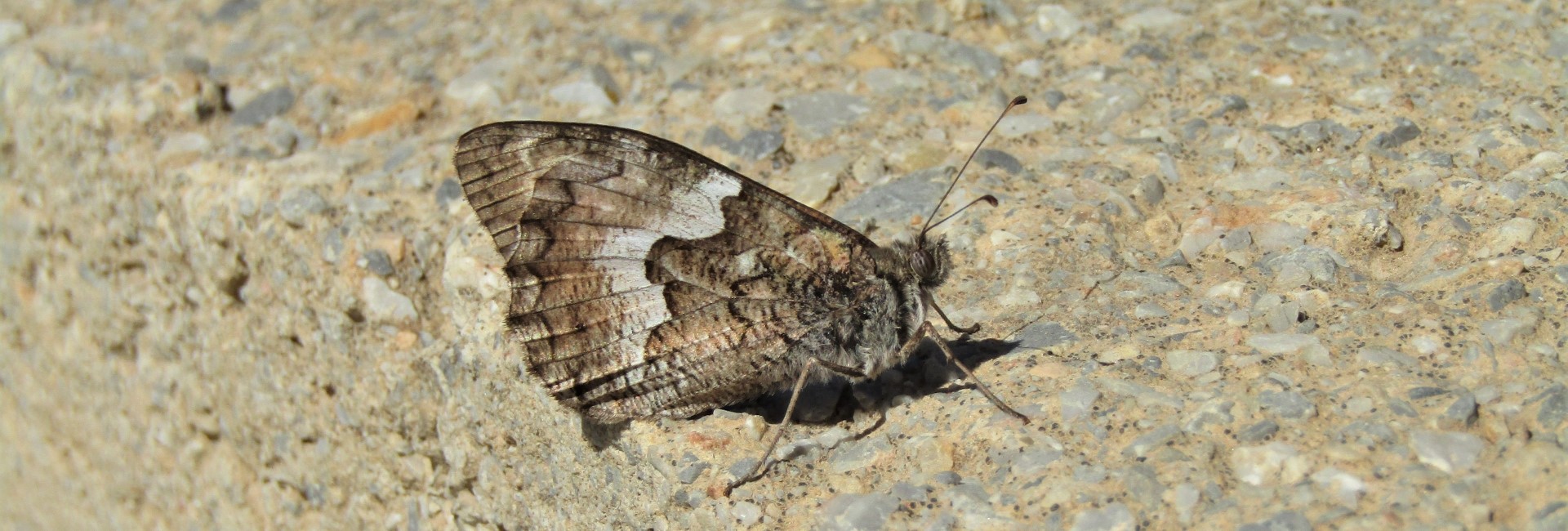
Hipparchia cretica, Crete - photo © K. Bormpoudaki
Hipparchia cretica
BUTTERFLY INFO
Hipparchia cretica is a butterfly of the family Nymphalidae on the island of Crete, Greece.
Scientific name
Hipparchia cretica (Rebel, 1916)
Common name
Cretan Grayling
Classification
Family: Nymphalidae > Subfamily: Satyrinae > Tribus: Satyrini > Genus: Hipparchia
Appearance
Females are usually larger than males, having more intense marks.
The upper side of the forewing is brown with a yellow-orange brown band in the postdiscal area and two “eyes". The underside of the forewing is yellow-orange with similar to the upperside “eyes".
The upper side of the hindwing is brown with a yellow-orange band in the postdiscal area. The underside of the hindwing is grey-brown, with black lines in discal, postdiscal, and submarginal areas, a white band in the postdiscal area, and has a small “eye".
Wingspan
Male to female: 50-70 mm
Behavior
The butterfly has a fast fly 1-2 m from the ground and never opens the wings when resting. If it feels threatened, it raises the forewings so that the eyespot near the apex is visible to scare the enemy.
The butterfly often settles head downwards when nectar plants.
Both sexes fly in mid-May and June, but later the females move to higher altitudes to avoid the very hot dry summer days.
Habitat
Hipparchia cretica in Crete lives in shrubland and forests, fields and mountains, dry habitats, rocky slopes, or scrub from the sea up to about 1,600 m asl.
Food plant
The larva feeds on Poaceae plants.
Flight period
The butterfly flies in one generation per year.
| Jan | Feb | Mar | Apr | May | Jun | Jul | Aug | Sep | Oct | Nov | Dec |
Remarks
Although Hipparchia cretica is an endemic species with a restricted range, this butterfly is not believed to face major threats.
The butterfly is widespread across Crete. It is the only Hipparchia species flying on the island.
Status*
Least Concern (LC)
Hipparchia cretica Distribution Map
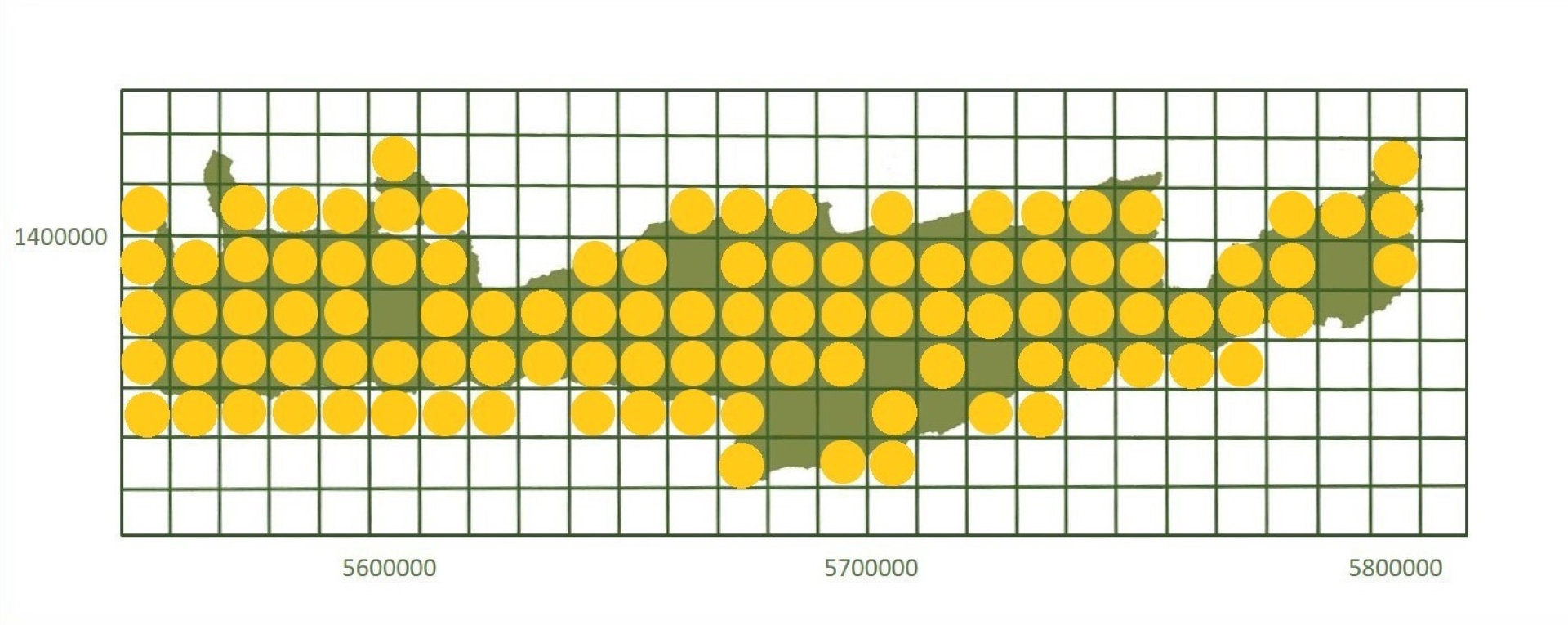
*based on http://www.pamperis.gr/THE_BUTTERFLIES_OF_GREECE/MAPS.html, updated Dec 2025 (ETRS89, grid 10X10 km)
